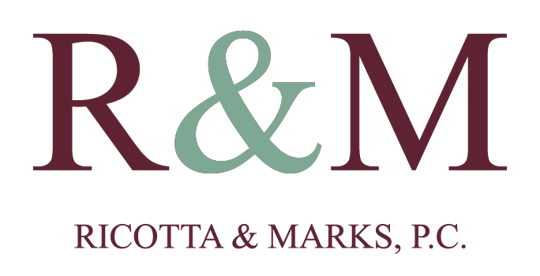Having a baby can be a time of joy, stress, or confusion—often a jumble of all three. Each of these feelings is a natural part of any life-changing event. What is not natural or acceptable is when an employer imposes discriminatory pressures and actions to complicate this time in your life. Legally speaking, there is no reason that you cannot become a mother and maintain your career. If you are experiencing discrimination based on your decision to become pregnant, contact the pregnancy discrimination lawyers at Ricotta & Marks, P.C. in Queens, New York.
Roughly three-fourths of American women in the workplace will become pregnant during their lifetimes. If you are pregnant or considering pregnancy, but are feeling undue pressures at your job related to this decision, you may be the victim of discrimination based on pregnancy, childbirth, or related medical conditions. This action is in direct violation of the Pregnancy Discrimination Act of 1978 and the anti-discrimination guidelines set forth by the Equal Employment Opportunity Commission. Additionally, the New York City Commission of Human Rights considers pregnant women a protected class. As such, they are safeguarded from discrimination in the workplace and elsewhere.
What Constitutes Pregnancy Discrimination?
If a woman is receiving adverse treatment with regard to any terms and conditions of employment based on pregnancy, it is illegal. This includes, but is not limited to:
- Hiring and firing practices;
- Benefits, including health insurance and leave;
- Job assignments, training and promotions.
What if Being Pregnant Results in Physical Limitations?
If you are unable to perform your usual duties due to pregnancy, your employer must provide the same accommodations it might for any employee with temporary restrictions on activity. In addition, federal employees may qualify for additional protections under the Rehabilitation Act.
To How Much Leave am I Entitled?
If you’ve been employed for twelve months prior to the requested leave, the Family Medical Leave Act of 1993 allows up to twelve weeks that may be used to care for a new child. Depending upon your circumstances, this might be paid or unpaid leave.
Will I Still Have a Job When I Return After Having a Child?
An employee’s job must remain open for a time period equivalent to the amount of time a job would remain open for standard sick leave or disability.
As a Nursing Mother, What Protections do I Have?
You are entitled to a private location (other than a restroom) and to time you need to express breast milk each day for up to a year following the birth of your child.
I Believe I Have Experienced Discrimination Based on Pregnancy.
The dedicated team of pregnancy discrimination attorneys at Ricotta & Marks, P.C. is on your side. Share your experience in a free consultation, and allow us to provide the experienced, confidential guidance you need to maneuver through the complex legal system.
The post Is Pregnancy Going to Impact my Career Trajectory? appeared first on Ricotta & Marks, P.C..

